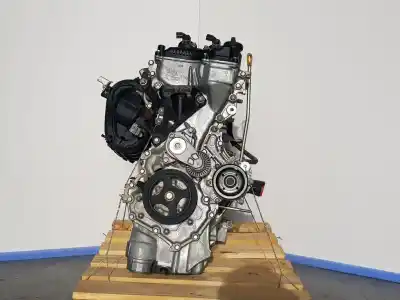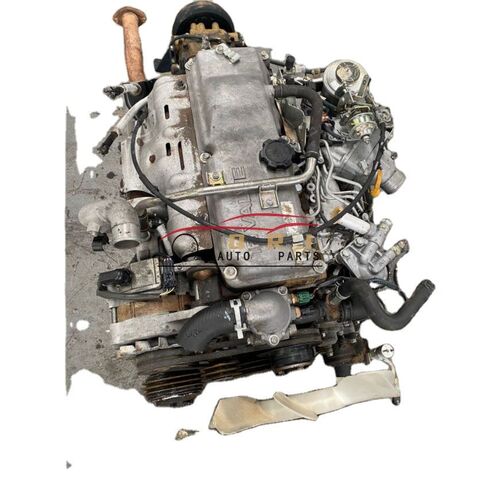Explore Quality and Value: Your Guide to Getting a Pre-owned Engine
When thinking about the acquisition of a used engine, recognizing the intricate balance between high quality and value is extremely important. A complete evaluation of engine history, problem, and reliability is essential to guarantee a sound investment.
Understanding Engine Types
When considering the purchase of a pre-owned engine, understanding of the numerous engine types is vital for making a notified decision. Engines can generally be categorized right into two major kinds: interior combustion engines and electric engines.
On the other hand, electric engines use electrical energy kept in batteries to power the automobile, providing a cleaner choice with fewer relocating components and decreased upkeep demands. Within these categories, there are even more differences, such as four-stroke versus two-stroke internal burning engines, and different electric motor configurations.
Recognizing these distinctions is critical, as they influence efficiency, compatibility with existing automobile systems, and long-term operational expenses. By familiarizing oneself with the various kinds of engines readily available, potential customers can better evaluate their demands and make selections that straighten with their lorry's needs and their individual preferences.

Reviewing Engine Condition
A complete analysis of engine problem is extremely important for any person taking into consideration the purchase of a pre-owned engine. Start with an aesthetic inspection; look for signs of oil leakages, rust, or any type of physical damages to the engine block. A tidy engine is often a sign of great maintenance techniques, while excessive grime may recommend disregard.
Next, assess the engine's components, consisting of the timing belt, gaskets, and seals. Look for deterioration, as these components can be pricey to change. In addition, examine the engine installs, as harmed mounts may bring about vibrations and further mechanical concerns.
A compression test is vital to gauge internal engine wellness. Uniform compression throughout all cyndrical tubes indicates a properly maintained engine, whereas significant inconsistencies may indicate inner damage or wear.
Listening to the engine throughout a startup can offer valuable understandings; any unusual noises, such as rattling or knocking, might suggest much deeper concerns. Finally, preferably, demand an examination run to assess efficiency under tons. By diligently evaluating these variables, potential customers can make educated choices and secure a high quality pre-owned engine.
Monitoring Engine Background
Understanding the engine's history is important for making a knowledgeable acquisition. Knowledge of previous usage, maintenance records, and any past damages can significantly affect the engine's dependability and longevity. Begin by requesting the car recognition number (VIN) or engine serial number, which allows you to trace the engine's background.
Utilize readily available sources, such as Carfax or AutoCheck, to acquire an automobile background report. This report will supply necessary insights, including mishap history, solution documents, and previous possession details. Toyota Home Page RunX RSI. Pay specific attention important site to any indications of severe damages or duplicated repairs, which might indicate underlying concerns
Ask about upkeep regimens carried out on the engine. Regular oil adjustments, timing belt replacements, and various other preventive actions reflect liable ownership. Furthermore, ask if the engine has actually gone through any alterations, as non-standard modifications can impact performance and compatibility with your car.
Lastly, ideally, look for verification from a relied on technician that can analyze the engine's problem based on its history (Toyota RunX RSI). This detailed investigation will certainly assist you prevent possible risks and make certain that your investment is beneficial and audio
Service Warranty and Return Plans
Investing in a second-hand engine usually comes with differing warranty and return plans that can considerably affect your choice. When thinking about a made use of engine, it is essential to completely review the service warranty options offered by the vendor.

Additionally, respectable vendors commonly offer documentation that outlines the guarantee and return procedure, making sure openness. Always ask for this info prior to finalizing your acquisition. A well-defined warranty and return policy can supply the original source comfort and secure your financial investment, making it an important component of the decision-making process when purchasing a second-hand engine.
Discovering the very best Bargains
When looking for the ideal bargains on a second-hand engine, it is important to perform comprehensive study and contrast costs from numerous vendors. Start by checking out on the internet marketplaces, automotive discussion forums, and neighborhood salvage backyards to gather a detailed understanding of the marketplace. Using rate contrast tools can simplify this process, highlighting affordable prices throughout different platforms.

Take into consideration timing your purchase strategically. Seasonal changes sought after can impact costs, with specific times of the year offering far better offers. In addition, be open to discussing rates; many vendors might agree to decrease their asking rate, specifically if the engine has actually been detailed for a prolonged duration.
Final Thought
In recap, buying a second-hand engine necessitates a complete analysis of high quality and value. Evaluating engine problem through examinations and examinations, validating its history, and understanding service warranty and return plans are vital actions. Additionally, contrasting prices throughout various vendors makes sure the very best economic decision. By sticking to these standards, buyers can boost their possibilities of getting a reliable engine that fulfills their requirements while staying clear of prospective pitfalls connected with used acquisitions.
When considering the acquisition of a used engine, comprehension of the different engine types is crucial for making an informed decision. Engines can generally be categorized into two main types: internal combustion engines and electric engines. Gasoline engines are normally lighter and rev higher, making them suitable for performance lorries, while diesel engines are renowned for their torque and fuel performance, typically preferred in sturdy applications.
An extensive analysis of engine problem is critical for any individual taking into consideration the acquisition of a used engine. Beginning by asking for the vehicle recognition number (VIN) or engine serial number, which allows you to trace the engine's history.